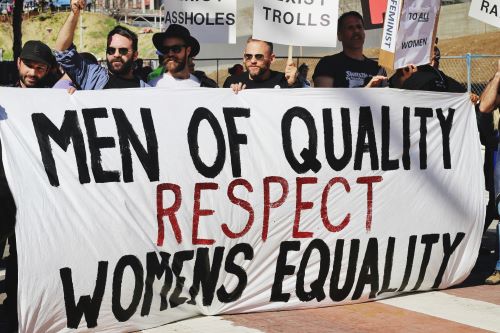Should judicial appointments be political?
- David Burton
- Blog
 Workplace Relations Minister Brooke van Velden has rightly been criticised over her claims that the Employment Relations Authority members believed “money grows on trees”. It is reported that Attorney-General Judith Collins has stepped in and spoken with Minister van Velden. Subsequently van Velden confirmed that she and the Attorney-General had “briefly discussed” how they both agreed an independent Employment Relations Authority is important.
Workplace Relations Minister Brooke van Velden has rightly been criticised over her claims that the Employment Relations Authority members believed “money grows on trees”. It is reported that Attorney-General Judith Collins has stepped in and spoken with Minister van Velden. Subsequently van Velden confirmed that she and the Attorney-General had “briefly discussed” how they both agreed an independent Employment Relations Authority is important.
A recent decision of the Employment Relations Authority demonstrates that it is prepared to hold employees accountable when they are in the wrong and have cost the employer money.
WVS is a real estate and property management company. It, and most of it’s witnesses, cannot be identified due to an order preventing publication of their names. Joanne Adlam began employment as an office administrator 2003. She was a long serving and trusted employee who held significant responsibilities, including handling bond payments from tenants.
Concerns were first raised about Ms Adlam when the Property Manager became aware in August 2020 that the Bond Centre claimed it did not hold a bond for a tenant even though the bond should have been lodged by Ms Adlam. The tenant contacted the Property Manager about the problem with the bond by text message and email, but it was deleted from the Property Manager’s inbox by Ms Adlam in an apparent attempt to prevent her actions being discovered. However, Ms Adlam did not realise that the Property Manager had been working late and had already seen the email.
The General Manager called Ms Adlam and told her that she and the CFO needed to speak to her about the reconciliation. The General Manager’s said in evidence that Ms Adlam said words to the effect of “it is what you think it is”, cried, and “said that she has been stealing money and that she was going to prison”. The General Manager said when asked how much she had stolen, Ms Adlam either said $60,000 or $90,000.
After an investigation meeting Ms Adlam’s employment was terminated in late August, and she agreed to offset her holiday pay against the amount owing and said she was looking to sell a jet ski for $14,000.
A subsequent independent financial investigation revealed that the figure was far higher - $881,240.96.
WVS sought to recover damages from Ms Adlam in the sum of $869,112 in the Employment Relations Authority, being the actual loss minus the holiday pay withheld.
Authority Member Rowan Anderson found that the loss claimed in relation to each category was proven and was attributable to the unauthorised misappropriation of funds by Ms Adlam for her personal use. The Authority found that Ms Adlam’s actions fundamentally breached her duty of good faith and an implied term to act with honesty and integrity in relation to WVS’s assets and property. The Authority awarded WVS damages in the sum of $869,112 and interest until the judgment is paid.
Yet in August this year Minister van Velden announced four new appointments to the ERA, saying she welcomed a “better balance” of public and private experience among members. In an interview she said that she was concerned too many ERA members had solely public sector experience. “They may believe that money grows on trees, because they’re used to union bargaining and those sorts of employment contracts, or [expect an] excellence of knowledge from the perspective of the employer in a situation too”.
The CTU and the PSA have called for van Velden to apologise. The PSA national Secretary, Fleur Fitzsimons, saying “these comments from the Minister are improper and amount to an inappropriate interference with the independence of the Employment Relations Authority. CTU President, Richard Wagstaff, went further “We are calling on the Prime Minister to show leadership by removing Brooke van Velden as Minister for Workplace Relations and Safety” and saying “it is of the upmost importance that ministers respect the independence of judicial bodies and not politicise them by saying they expect members they’ve appointed to deliver outcomes that suit their political agenda”.
It certainly would be a shame if appointments to New Zealand’s judiciary became political appointments like the Supreme Court is in the United States, and the public become used to and accept that appointees to the judiciary are simply an extension of the government of the day. Read more...




